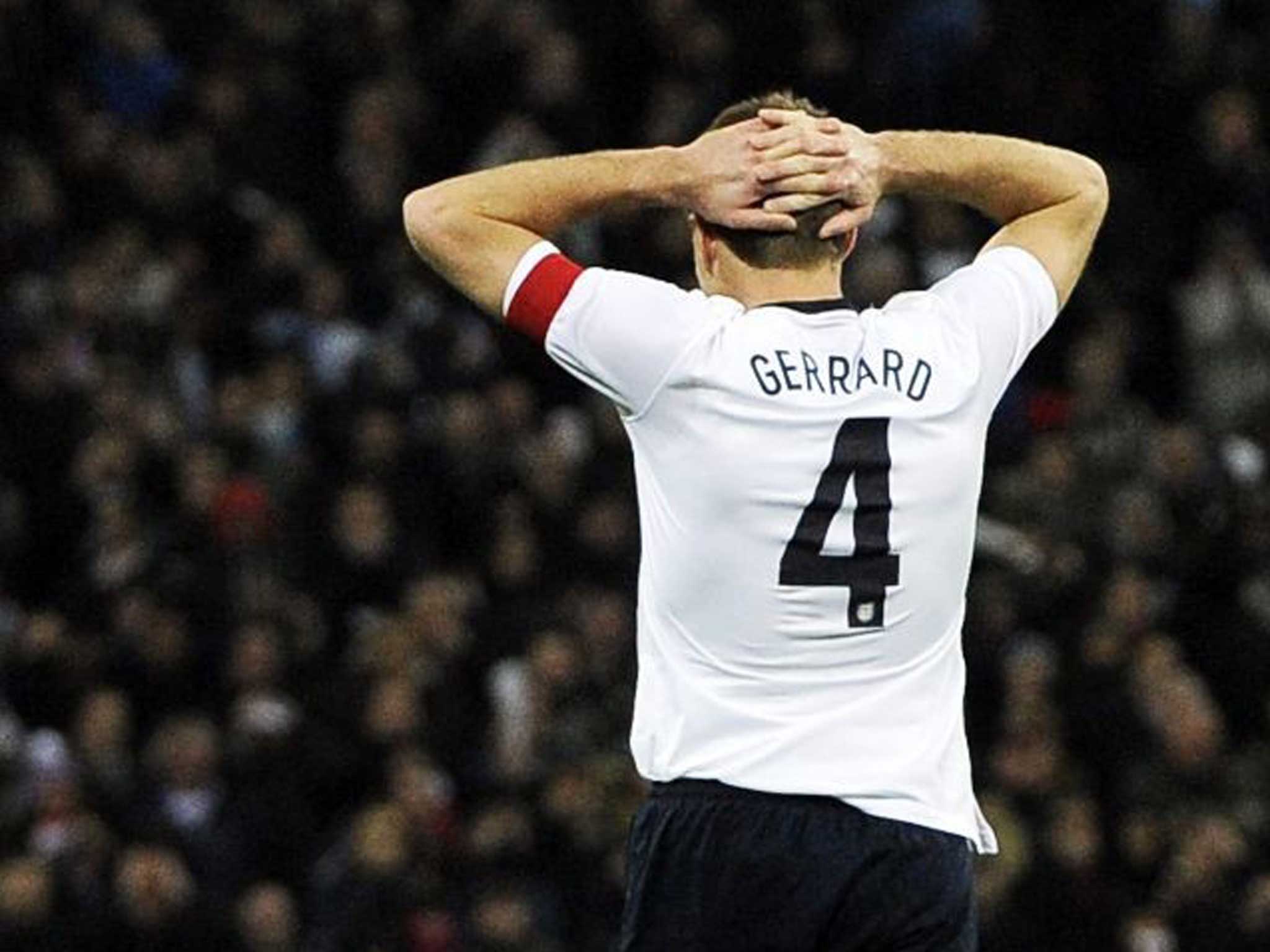Michael Calvin: England’s ’53 wake-up call still ignored
The Last Word: Anniversary of defeat finds national team still struggling with changed world order

An England defeat at Wembley degenerates into an inquest shaped by shredded pride, unsustainable ambition and a creeping comprehension that the world order has changed irrevocably. Damning comparisons are made with opponents whose “passes were kept low and smooth”. Their “shooting was thrilling in its power and accuracy from any range” and aligned to a fluid pattern of play in which “swift players moved always into open spaces with perfect understanding”.
An inferiority complex is fostered. England were “confounded by speed, control and unparalleled exactitude of positional play”. Their tormentors had “superior fitness” and “finer athletes, with poised, beautifully balanced movements”. They “changed position at will, almost alarmingly sometimes, but rarely failed to find each other”.
England’s finest are urged on to the training ground, following “a severe lesson in the arts of association football.” They are warned: “England will never match this efficiency unless the progress of international teams becomes of more importance than the interminable League programme.”
The more things change, the more they stay the same. The prosaic language taken from live match reports may give the game away, but the strictures delivered when England lost 6-3 to Hungary 60 years ago tomorrow remain relevant.
Defeat may no longer invoke the collective trauma of that November afternoon in Coronation year, but the system underpinning English football still militates against progress. It is reactive rather than proactive. Coaching continues to be undervalued and misdirected.
History is an undervalued tutor, and informs us that the issues driving the debate about the future direction of the domestic game are cyclical. Fecklessness and perceived lack of commitment to the national team are not a modern curse. An anonymous England player mourned after the ignominious retreat from the 1962 World Cup finals in Chile: “Some of our fellows didn’t have the guts or the dedication.”
Bureaucrats were human woodworms even then. Results cost Walter Winterbottom the original impossible job as manager of an England team selected by a committee. Vengeful mediocrities on the FA Council subsequently prevented him from becoming the far-sighted administrator the game required so desperately.
A fevered debate about the merits of introducing a so-called “Super League” ran parallel to England’s preparations for the 1966 World Cup. Sir Alf Ramsey’s disdain for the simplistic assessment of friendly results – “If you want me to pick teams to win unimportant matches, I will” – mirrors that of Roy Hodgson.
There are intrinsic differences: Hodgson will never experience the deference enjoyed by Ramsey, whose aloofness and social pretensions, highlighted by his elocution lessons, would leave him vulnerable to the mockery of today’s chattering classes. Wembley has become a crèche rather than a cauldron, because marketing of England matches is designed to appeal to fortysomethings in the M25 corridor with disposable income and latent guilt about the lack of quality family time.
Members of Germany’s coaching staff who were involved in Euro 96 were struck on Tuesday night by the neutralisation of the atmosphere at a venue which, for all its self-evident flaws, retains a global mystique.
More profoundly, they had their preconceptions of England’s tactical and technical inadequacies borne out. The conclusion, that Hodgson’s team are trapped in a time warp and doomed to remain on the margins, was damning but not surprising.
Modern, high-pressing football requires players of youth, intelligence and peerless fitness. The German view of England as a tactically rigid team, over-reliant on ageing players operating without the requisite intensity, rings true.
Winning the World Cup in 1966 was an accident of geography and timing. We didn’t learn the lessons of the Magical Magyars in 1953, and there is no sign that the bluff and bluster exemplified by the FA Commission will change a thing.
Enjoy next summer’s World Cup for what it is: a pleasant diversion in evocative surroundings, and the usual damage-limitation exercise for England.
Time to call for Captain Courage
Judged by Sir Clive Woodward’s capacity for self-promotion, England were a one-man team when they won the World Cup in 2003. True, up to a point, but that figurehead was an inspirational captain rather than an egocentric coach.
Martin Johnson was conspicuous by his reticence during the 10th anniversary celebrations. He has consistently rejected empty celebrity, and his belittlement in the aftermath of England’s 2011 World Cup failure clearly cut deep.
Rugby needs to remind itself of his values. It cannot afford to accept the continued marginalisation of a dignified man whose loyalty was abused by players who failed in their duty of care to the shirt.
Johnson combined physical and moral courage. He was unafraid to face down any threat, whether posed by a bunch of behemoths from the southern hemisphere or the RFU blazerati who disputed his team’s terms and conditions.
When he stood down as a player he did so with the acclamation of an awestruck public ringing in his ears. When he resigned as head coach, he was pilloried by mediocrities.
He kept his own counsel, and retained his dignity. There is no finer role model for the next generation. Call him, Stuart Lancaster.
Smug alert
Karma is a harsh mistress. England’s over-indulged cricketers were always a little too smug and self-congratulatory. They evidently regarded the Ashes as their birthright. At the first sight of concerted Australian aggression they have crumbled. They deserve every micro-second of the humiliation to which they have been subjected in Brisbane.
Subscribe to Independent Premium to bookmark this article
Want to bookmark your favourite articles and stories to read or reference later? Start your Independent Premium subscription today.

Join our commenting forum
Join thought-provoking conversations, follow other Independent readers and see their replies